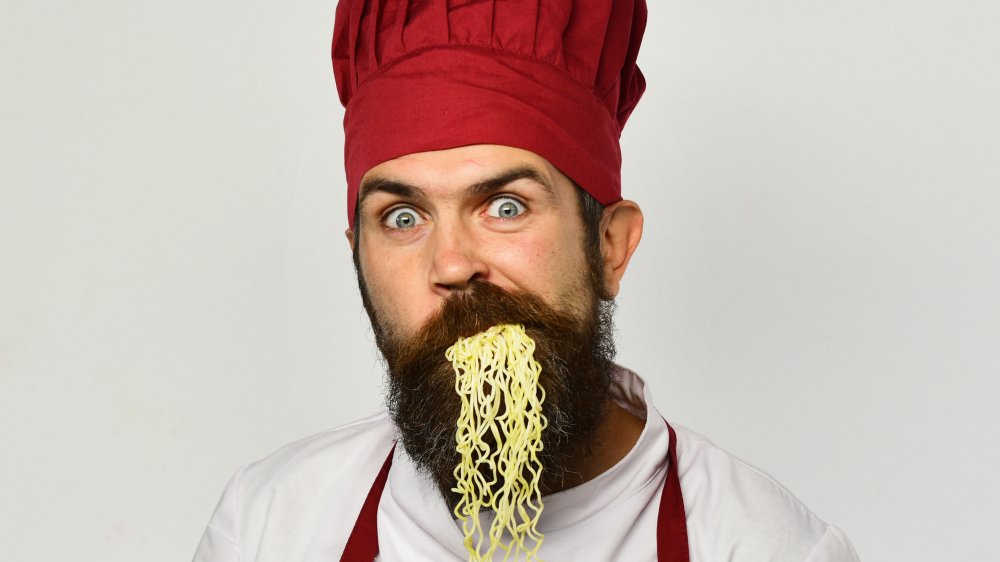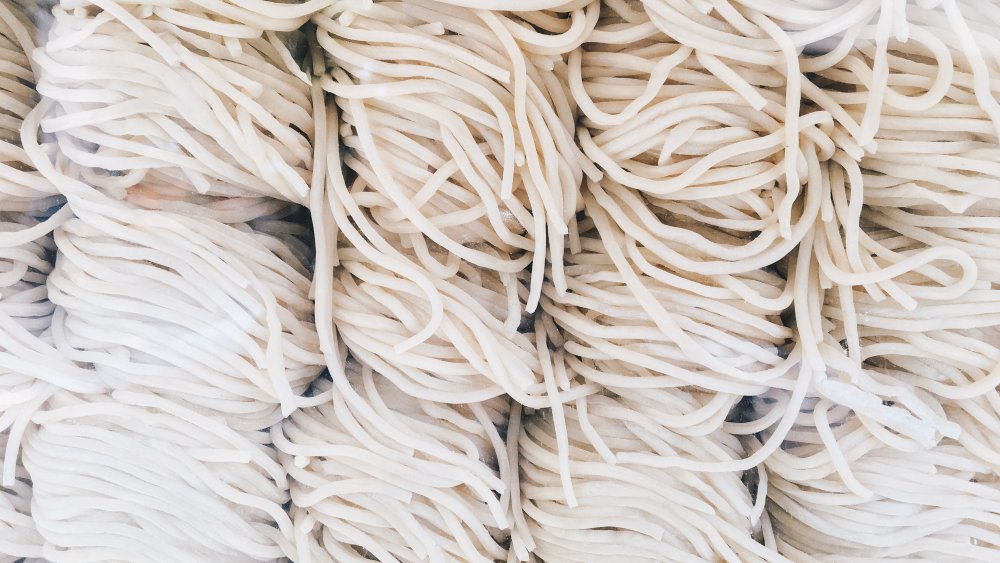Takeout Noodles Lead To Invention Of Synthetic Tissue
Noodles can be a great many things, such as a cheap, relatively nice instant meal, a slightly more expensive and delicious home-cooked meal, and ... uh, an even costlier and (hopefully) tastier restaurant meal. OK, so they're not all that versatile after all. However, Phys.org informs us that we can now add a new entry to our unofficial Noodle Hall of Fame: Noodles have inspired a brand new, super-tough, flexible synthetic tissue that is able to heal from damage and even "defend itself." Now that's impressive.
While this wasn't some poor student forlornly staring at a bowl of instant ramen noodles and suddenly having a "eureka" moment, it's still pretty close. One day, two scientists at the University of Chicago, Bozhi Tian and Yin Fang, were eating takeout noodles from a restaurant that prepared them in the style of Tian's Chinese home town, Xi'an. These wheat noodles are stretched until they turn strong, flexible and chewy, which got the scientists thinking: Why does that happen? Shouldn't overly stretched noodles become "thin and weak?" Eventually, they figured out this was because of starch granules, and by adding similar components to a recipe of synthetic tissue they were working on, they were able to create the kind of stretching, healing and self-defending effect the noodles had. This is a big deal, because it's quite similar to how human skin behaves, and currently available synthetic tissues have been only able to mimic it partially. The new, noodle-inspired tissue, on the other hand, is significantly closer to the real deal. Go noodles!
A noodle incident
Since the inspiration for the new material came from Xi'an noodles, it makes sense that Bozhi Tian and Yin Fang started their journey by having plenty of the stuff on hand for research purposes (which was presumably also handy if they got peckish). As a result, they ended up ordering "pounds and pounds" of noodles from the restaurant for their experiments. Unfortunately, the restaurant wasn't particularly happy with increased sales. According to Fang, "They got very suspicious. I think they thought we wanted to steal their secrets to open a rival restaurant." And now we kind of want a sitcom where two scientists desperately try to acquire noodles for their important research, only for their attempts to be constantly foiled by a grumpy old restaurant owner who's convinced that they're trying to spy on his recipes.

